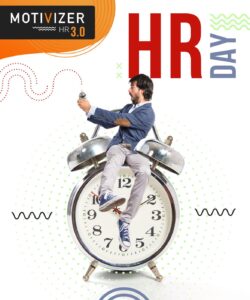Digitalization of business processes and ways of motivating employees in the COVID-19 era – an opportunity or a necessity
kategorie: Motivating employees
temat: benefits, covid-19, digitization of processes, employee health
The Sars-CoV-2 virus pandemic, also known as COVID-19, represents a series of unexpected challenges for the world. However, none of these challenges are really new. The restrictions and problems associated with the coronavirus have only accelerated trends and changes that were already shaping our reality. It seems that the three strongest trends will have the biggest impact on what the post-pandemic world will look like:
●The pace of globalization will slow down,
● A sudden increase in debt will occur,
● The rapid digitization of the world will continue
Of the mentioned trends, the last will be strengthened the most and will be the most visible by far. The rapid digitization of work and life forced by the pandemic due to reduced human interaction is not new.
Few people remember the groundbreaking essay by Marc Andressen published in the middle of the financial crisis in 2008: “Software is eating the world” with the main thought: “6 decades after the development of computers and 4 decades after the invention of the microprocessor, the technology needed for digital transformation is ready and can operate on a global scale”.
The observation from 2008 has become fully real today. The rapid and widespread digitization of the way companies work, in just a few months of 2020, has become a fact.
Qualified electronic signature in Motivizer
The Motivizer system has a module of qualified electronic signature that allows for easy implementation in any company. Read more about it in the post “Qualified electronic signature for HR departments“
Trend of digitizing business processes stronger than ever
The transition to remote work, previously used by only a small percentage of employees, but now on an unprecedentedly large scale, represents a huge challenge for managers, especially at higher and highest levels, and their supporting HR departments. Digitization of work also includes reducing face-to-face contacts, both as a precaution in the fight against the spread of the COVID-19 virus, but also as a permanent trend to reduce purely technical activities that can be transferred to the virtual world.
It should also be noted that the trend of digitalization of business processes also affects industrial sectors that have not previously used technology to such an advanced degree, such as logistics or production companies.
The cafeteria system - a response to HR department needs
Efficient transition to a new way of working, in addition to video conferencing platforms, also requires appropriate tools to support HR work. They have faced a completely new challenge – actions without physical contact with employees. There is therefore an urgent need for digitalization and automation of processes that previously consumed most of the time and energy, such as accepting and accepting applications, accounting, reporting, – document circulation, or the daily work of HR departments.
The response to today’s demand for technology in the HR area is the cafeteria system.
Platforms operating in the “multi-party platform” business model provide, on the one hand, tools for HR departments through the automation of processes, and on the other hand, a solution for employees who can realize their benefits in one virtual place based on the granted rights.
Evolution in motivating and rewarding employees
In the “pre-covid” world, most of HR’s attention was focused on non-wage benefits such as sports packages and movie tickets, as well as actions aimed at strengthening employee motivation, such as team-building meetings or integrative trips. In the new reality, most of these traditional activities have become practically impossible to implement. Gyms, pools, and cinemas first became places where staying was associated with a high risk of infection, and then were closed. Integrative trips or team-building meetings of teams became completely impossible in the conditions of “creeping lockdown”. Motivating employees has entered a new digital level.
In the new reality, just as teleconferencing platforms for meetings, tools for HR departments have gained importance in reducing physical contact with employees and automating the submission, approval of documents and preparation of various reports. Digitalization and automation of technical HR activities by offloading systems have allowed HR departments to redirect their attention, energy, and time to preparing initiatives that will motivate and satisfy employees in conditions of limited contact between them.
It is also significant that faster processing of applications positively impacts employee satisfaction and, as a result, obtaining benefits from the employer.
Faster, safer – integration of the canteen system with the employer's IT domain system
The main emphasis when choosing functionalities of HR support systems today is on actual ease of submitting, reconciling, and reporting various benefits via digital platforms – from medical subscriptions and group insurance to nursery allowances, holiday vacations, glasses funding, and all other benefits that were previously handled in paper form.
Integration of canteen systems with the employer’s IT domain systems enables quick integration and data exchange, and the platform is treated as the HR service center.
In the digital world, the importance of so-called Kudos, a tool introduced by LinkedIn in 2018, has dramatically declined. Today, people can congratulate each other on good work on chat platforms such as Teams, Zoom, or Google Meet, which have become a daily work place. The functionalities of HR systems, on the other hand, are priceless. For example, they show the total rewards obtained from the employer (Total Reward Statement), or they allow for easy organization of a team collection for a gift for one of the members. The voucher for purchases at a selected e-commerce site, such as Allegro, has become a synonym for the new times (it is therefore not surprising that this company was the most highly valued company on the WSE).
Digitalization of business has become a fact and a necessity
There is no doubt that the epidemic will end someday, but the expectation that the world will return to how it was, and that companies will withdraw from deep digitization, is impossible, just like the expectation of some residents of Great Britain that, due to Brexit, the “old good England of the 60s and 70s” will return. Automation and digitization will stay with us permanently, and the digital functionality introduced during the pandemic will become essential for companies. In an increasingly competitive market, those who introduce truly digitizing systems – document and business flow – will win, freeing employees from performing simple, manual reporting and conclusion-making tasks. This will shift many time, attention and energy resources to activities “uniquely characteristic of humans”, such as developing innovative ways of responding to new needs and challenges.
The author of the publication is Piotr Dubno, CFO of Motivizer.
Recent Posts:
- Capital24.tv Debate with Piotr Dubno – “Economy, Innovation, Investments. What Changes Await Us?
- The future of HR – what will be the key to organizational success?
- Are you keeping up with the idea of a modern workplace?
- Burnout, how can an employer help an employee?
- Digitalization of HR is key to unlocking the full potential of an organization

